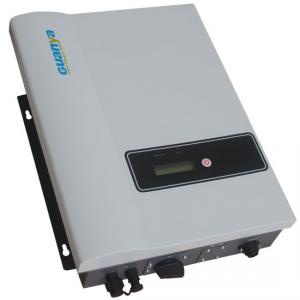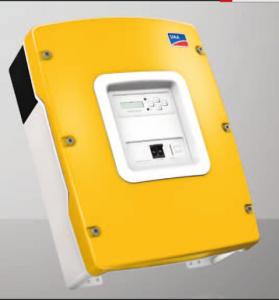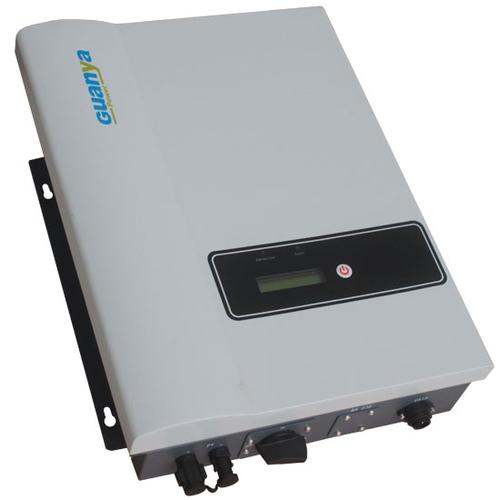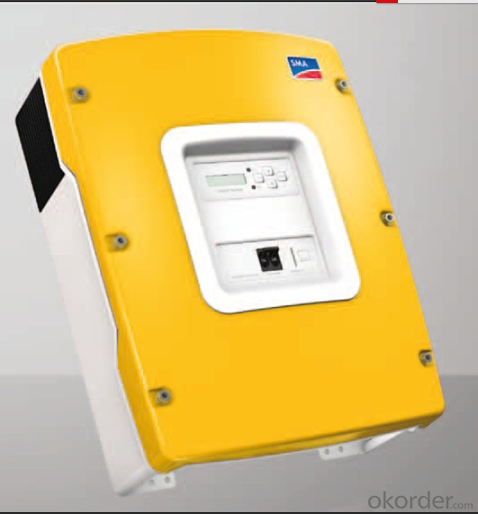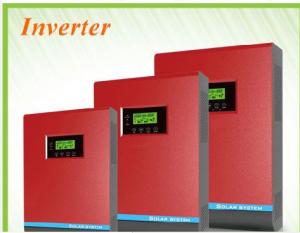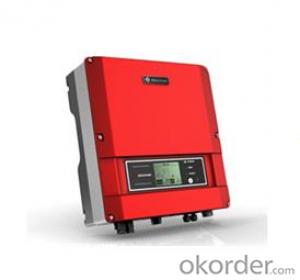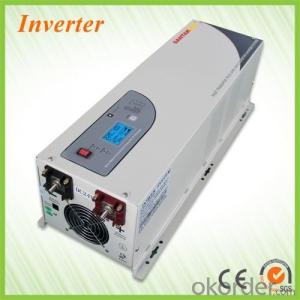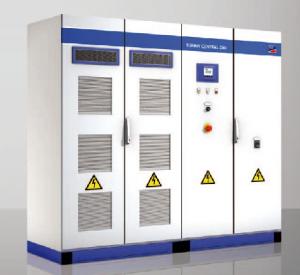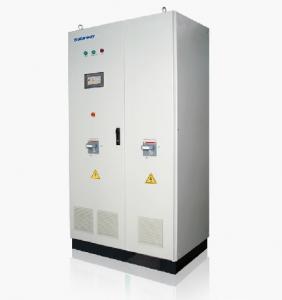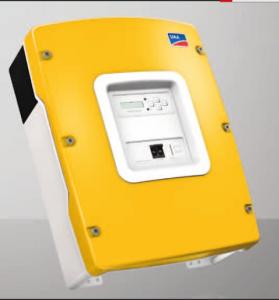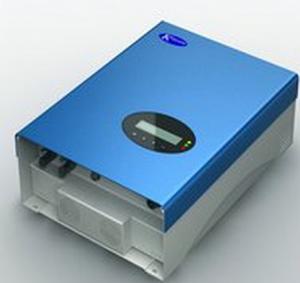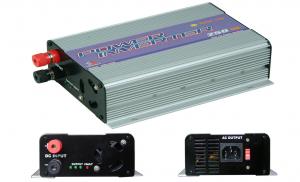250 Kw Solar Inverter - PV On-Grid Inverter with Good Quality from China
OKorder Service Pledge
OKorder Financial Service
You Might Also Like
Description:
CNBMSOLAR is a world-leading and Vertical integrated manufacturer of high-performance with Silicon,
Wafer, Cells, Modules, which convert sunlight into electricity for residential, commercial, and utility-scale
power generation.
The capacity of CNBMSOLAR is reach to 1GW, and make sure each year our shipment capacity is more
Than 700-800MWs, at the same time, we have set up the largest solar power station with our partner
in Ukraine.
CNBM is a Quality + Service oriented company with“Excellence at Each Step” approach, composed of
the finest components from TUV and IEC-certified partners around the world, CNBM modules consistently
undergo a variety of trials at the company’s Test & Development Centre, ensuring peak performance
capabilities. The company is committed to develop and provide the world with clean and renewable energy
to ease the energy shortages as well as human kind’s impact on the environment.
Data:
Isolation mode | No transformer | Rated power | 4(KW) |
Max. DC. Input power | 4.4(KW) | Max. Input voltage | 500(VDC) |
Max. Input current | 29.3(A) | MPPT range | 150~450(VDC) |
Rated AC output power(KW) | 4(KW) | Max. Output power | 4.2(KW) |
Rated Grid voltage(VAC) | 230 | Rated Grid frequency(Hz) | 50(Hz) |
Max efficiency | 97.10% | Euro efficiency | 96.40% |
Display | LCD | THD | <3% |
Power factor | ≥0.99 | MPPT Precision | 0.99 |
Communication interface | RS232;GSM | Electromagnetic compatibility | IEC61000-6-1/-2/-3/-4 |
Grid disruption | IEC61000-3-2/-3 | Grid detection | DIN VDE 0126 |
Overload operating | Automatically adjust the running peak | Internal consumption at night | 0(W) |
DC voltage ripple | Vpp < 10% | Protection class | IP65(outdoors) |
Anti-islanding protection | Vac;Fac | Cooling concept | Cooling method |
Operating temperature range | —25℃~60℃(>45℃drop) | Operating humid range | 0~95%(non-condensing) |
Dimensions(dxwxh) | 475*415*150mm | Weight | 20 (Kg) |
Altitude | 6000,>3000m start to drop |
|
|
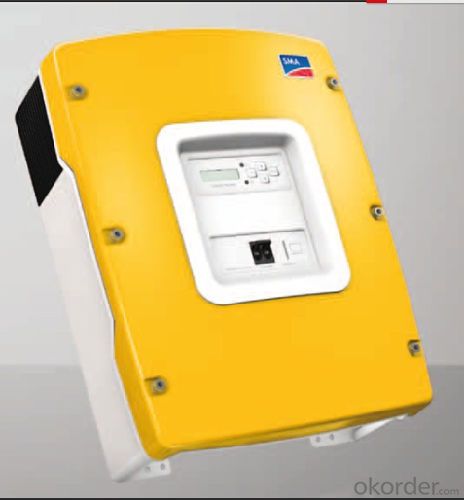
FAQ:Could you pls introduce more about CNBM ?
CNBM Group is short for China National Building Materials Group Corporation, which is established in 1984 with approval from the State Council
CNBM Group is the largest comprehensive building materials industry group in China
The Group has a total asset of over RMB 360 billion, more than 180,000 employees and 17 subsidiaries
- Q: Can a solar inverter be used with a solar-powered air conditioner?
- Yes, a solar inverter can be used with a solar-powered air conditioner. A solar inverter is responsible for converting the direct current (DC) electricity generated by solar panels into alternating current (AC) electricity that can be used to power appliances. In the case of a solar-powered air conditioner, the solar inverter would be essential for converting the DC electricity generated by the solar panels into AC electricity to run the air conditioner.
- Q: Can a solar inverter be used in areas with unstable power grids?
- Yes, a solar inverter can be used in areas with unstable power grids. Solar inverters are designed to convert the direct current (DC) generated by solar panels into alternating current (AC) for use in homes or buildings. In areas with unstable power grids, solar inverters can help stabilize the electricity supply by synchronizing the solar power output with the grid. Additionally, some advanced solar inverters have features like grid support functions and voltage regulation, which can further enhance their performance in areas with unstable power grids.
- Q: What is the typical installation process for a solar inverter?
- The typical installation process for a solar inverter involves several steps. First, a suitable location for the inverter is identified, usually near the solar panels. The inverter is then mounted securely on a wall or other structure. Next, the DC wiring from the solar panels is connected to the input terminals of the inverter, ensuring proper polarity. The AC output terminals of the inverter are then connected to the electrical panel of the building, often through a dedicated circuit breaker. Finally, the inverter is connected to the monitoring system to track its performance and ensure optimal energy production. It is important to follow the manufacturer's instructions and consult a professional electrician to ensure a safe and efficient installation.
- Q: How does a solar inverter handle voltage sags or swells in the grid?
- A solar inverter handles voltage sags or swells in the grid by continuously monitoring the voltage levels. When it detects a sag or swell, it adjusts its internal circuitry to regulate the output voltage accordingly. This ensures that the connected solar panels continue to operate within their optimal voltage range, minimizing any negative impact on the overall power generation system.
- Q: Can a solar inverter be used with both AC and DC power sources?
- No, a solar inverter is designed to convert DC (direct current) power generated by solar panels into AC (alternating current) power for use in the electrical grid or to power AC appliances. It is not intended to convert AC power into DC power.
- Q: What is the role of an anti-islanding feature in a solar inverter?
- The role of an anti-islanding feature in a solar inverter is to ensure the safety of utility workers and prevent damage to the electrical grid. It detects when there is a power outage or grid disturbance and immediately shuts off the solar inverter to prevent it from continuing to generate electricity. This feature is crucial as it prevents the solar system from operating independently and feeding power back into the grid, which can be dangerous for utility workers trying to repair the power outage.
- Q: Can a solar inverter be used with solar-powered water purification systems?
- Yes, a solar inverter can be used with solar-powered water purification systems. A solar inverter is responsible for converting the direct current (DC) produced by solar panels into alternating current (AC) that can be used to power electrical devices. In the case of solar-powered water purification systems, the solar panels generate electricity through sunlight, which is then converted by the solar inverter to power the purification system, ensuring clean and safe drinking water.
- Q: What are the key factors affecting the installation process of a solar inverter?
- There are several key factors that can affect the installation process of a solar inverter. Some of these factors include the location and orientation of the solar panels, the distance between the panels and the inverter, the type and capacity of the inverter, the wiring and electrical connections, and the availability of appropriate mounting structures. Additionally, factors such as local regulations, building codes, and safety considerations also play a crucial role in the installation process of a solar inverter.
- Q: Can a solar inverter be used in a solar-powered electric vehicle charging station?
- Yes, a solar inverter can be used in a solar-powered electric vehicle charging station. A solar inverter is responsible for converting the direct current (DC) generated by solar panels into alternating current (AC) which is suitable for use in electric vehicles. Therefore, it plays a crucial role in converting the solar energy into electricity that can be used to charge electric vehicles at the charging station.
- Q: What is the difference between a single-phase and three-phase solar inverter?
- A single-phase solar inverter is designed to convert the direct current (DC) produced by a solar panel into alternating current (AC) for use in single-phase electrical systems. It is typically used in residential or small-scale solar installations. On the other hand, a three-phase solar inverter is capable of converting DC power into AC power for use in three-phase electrical systems, which are commonly found in commercial or industrial settings. The main difference lies in the number of phases supported and the scale of the electrical system they are designed for.
Send your message to us
250 Kw Solar Inverter - PV On-Grid Inverter with Good Quality from China
OKorder Service Pledge
OKorder Financial Service
Similar products
Hot products
Hot Searches
Related keywords
